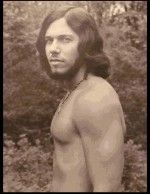Colgate Entrenpreneurs: Andy Greenfield ’74

“Courage is not defined by those who fought and did not fall, but by those who fought, fell and rose again.” It’s the type of line you might expect to find in a Kung Fu movie, but when uber-successful serial entrepreneur Andy Greenfield ’74 imparts this type of wisdom, he does it with the utmost sincerity and with 40 years of experience starting and running his own businesses. You listen.
One of his businesses was Greenfield Online, the world’s leading provider of online survey data. It was eventually sold to Microsoft for $486 million in 2008. Another was iGain.com, a web marketing company focused on helping e-businesses increase customer loyalty. Yet another was Greenfield Consulting Group, which he built into North America’s leading qualitative marketing research firm before it was sold to Millward Brown, one of the world’s largest marketing firms. But Greenfield’s path to becoming the quintessential serial entrepreneur began with failure, and an impressive failure at that.
“As an entrepreneur you will fail,” Greenfield said. “It’s not a question of if, but when.”
In 1971, Greenfield had finished his sophomore year at Colgate when he realized that he was not ready for college.
“Let’s just say, I took a leave of absence because of my impressive 1.6 GPA,” Greenfield smiles. “I was ready for the social dimension of college, but not the academic dimension.”
When he returned home, Greenfield started a small tennis court lighting business. In four months, Greenfield had turned a profit and his business was prospering.
Greenfield said, “That was my first lesson in business. Competitive advantage did not have to be built on a product innovation, but can be built on a simple pricing advantage.”
Despite the success of his business, Greenfield felt intellectually unfulfilled. After a few months skiing in Colorado, he returned to Colgate to major in philosophy.
Sufficiently motivated, Greenfield finished his Colgate degree with straight A’s before heading to Brown for a Ph.D. program in philosophy. He wanted to be a Philosophy professor but in his time at Brown, Greenfield says the job market for philosophy professors had disappeared, especially for someone who had never taught before.
But Greenfield has no regrets because philosophy prepared him well for the business world.
“Philosophy and liberal arts in general doesn’t teach you what to think, but how to think,” he said. “It teaches you to reason, formulate a position and make things happen.”
After settling for an entry level job in advertising, Greenfield’s entrepreneurial stirrings were getting the best of him. His first major venture was Essex Limousines Company, which he started with his friend, Peter Hausburg, in New York City in 1981. Just two years later, he was forced to close his business, which had $250,000 of debt. In its first fourteen months, Essex Limousines was seeing some success. Greenfield and Hausburg were building a company with steadily growing revenue.
“Our market assessment indicated that there was a large gap between the needs and wants of limousine customers, and the quality of service being provided.”
But the trouble came in ways that could not be part of a business plan. One Friday night, Greenfield discovered that one of his limousines had all its windows smashed in. Each Friday night for the next month, another limo would be out of commission because of a crowbar attack. “Clearly, someone was trying to send us a message.”
Then New York District Attorney, Robert Morgenthau, and a team of detectives determined that the string of incidents was an extortion attempt by a rather unpleasant branch of a New York City crime family.
“During the investigation period, I was sleeping maybe an hour a night, getting escorted back and forth from my apartment to our office by detectives.” Greenfield said. “That type of situation can only end in two ways: you either get into bed with bad guys or you can say ‘no mas.’ I said no more.”
Greenfield unloaded the company on Pat Testa, who two years later was “gunned down in a fusillade of 9mm bullets,” Greenfield said. Testa was the leading enforcer for the Luchese crime family. “I can laugh about it now, but back then it was ugly.”
“When my business closed, I was in terrible shape financially and emotionally,” Greenfield said. “We had failed. We had been forced out by the mafia. I was horribly in debt. I was in a world of hurt.”
He escaped to Vermont for several months – humbled and $250,000 in debt – hoping to regain his composure. Greenfield explains, “I rebuilt myself emotionally and recaptured my drive and passion.” He enthusiastically adds, “Passion is the fuel for action. That’s all you need.”
He emerged from his mafia nightmare and Vermont hiatus with plenty of drive and passion. In late 1983, the same year Greenfield was forced to close his limousine business, he started Greenfield Consulting Group, which he built into the largest qualitative marketing firm in North America.
“Being an entrepreneur is something that someone simply is. It’s an organic expression of who you are. It’s in your blood.” Greenfield pauses and adds, “Building something from nothing. That’s what it’s all about.”
This is the first part of a two part piece. Next week, read how Greenfield built and sold three companies in 10 years. The Colgate Entrepreneur is a new column that profiles Colgate alumni who have taken the road less traveled and started their own businesses. If you know an innovator or entrepreneur you would like to nominate, e-mail [email protected]. Also follow our column’s daily blog at maroon-news.com/blogs.



